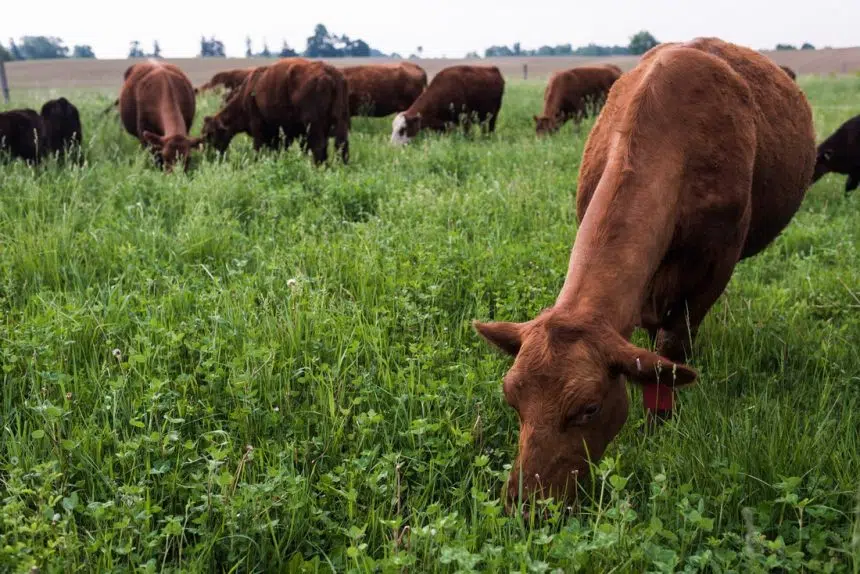The potential CP Rail strike could have big consequences for Saskatchewan producers.
Especially after last year’s drought, farmers across Western Canada have been relying on imported feed for their animals.
“Producers from (Alberta and Saskatchewan) only have eight to 14 days worth of supply on hand,” said Will Lowe, a Saskatchewan producer and president of the Saskatchewan Cattle Feeders Association.
“We may actually have cattle with no feed in Western Canadian feed lots.”
He said more than a million heads of cattle between Saskatchewan and Alberta need that feed and the strike is hitting the industry hard.
Lowe called it a potential animal welfare issue.
The Saskatchewan producer farms grain and cattle. He said he thinks his farm will be OK because it doesn’t have too many animals to feed.
Operations with 35,000 to 40,000 heads of cattle, however, consume around three to four railcars of feed — each about 100 tonnes — each day.
Lowe said storage is also a problem.
“We’ve never really experienced something like this where we’re importing this much feed grain,” he explained.
Local suppliers aren’t options anymore, Lowe said, because they’ve already been exhausted with high demand from the drought.
Fertilizer will also be a concern for farmers with crops. While Saskatchewan produces nitrogen fertilizer and potash, phosphates are imported, often from the United States and usually brought in by rail.
“There’s lots of product to come in before spring seeding here and we’re obviously not that far away,” Lowe said.
The supply concern is just the latest in a long line of issues the agriculture industry has had to overcome in recent years, from COVID delays to flooding in B.C. and truck blockades.
— With files from 650 CKOM’s Lara Fominoff











